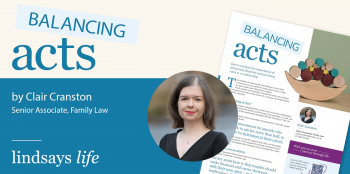Wedding season is upon us and an increasing number of people are turning to prenuptial agreements ahead of their big day.
Whilst the legal process of prenuptial agreements isn't romantic, more couples are seeking the peace of mind and clarity that the agreement brings.
No-one enters a marriage intending for it to fail, however around 40% of all marriages do not work out. In the eyes of many it therefore makes sense to set out what should happen in the worst-case scenario of a divorce. Prenuptial agreements are becoming increasingly popular for those who have been married previously and built up significant assets or in cases where they are seeking to protect their assets for the benefit of children from a previous marriage.
This is especially true where individuals have significant assets, or where they are seeking to protect their assets for the benefit of children from a previous marriage.
It has been reported that prenuptial agreements are not always legally binding, however this is only the case in England. In Scotland they are enforceable, provided that they are fair, no information has been withheld and no-one has been put under any pressure to sign.
It is important to get advice about a prenuptial agreement well in advance of a wedding as it may not be the best topic of conversation in the midst of wedding preparations. If there isn’t time to organise a prenuptial agreement before the big day, you can enter into a postnuptial agreement after you are married.
Entering into a prenuptial agreement no longer carries the stigma it once had and provided both partners are in agreement, they can help to bring clarity and peace of mind to a marriage.








